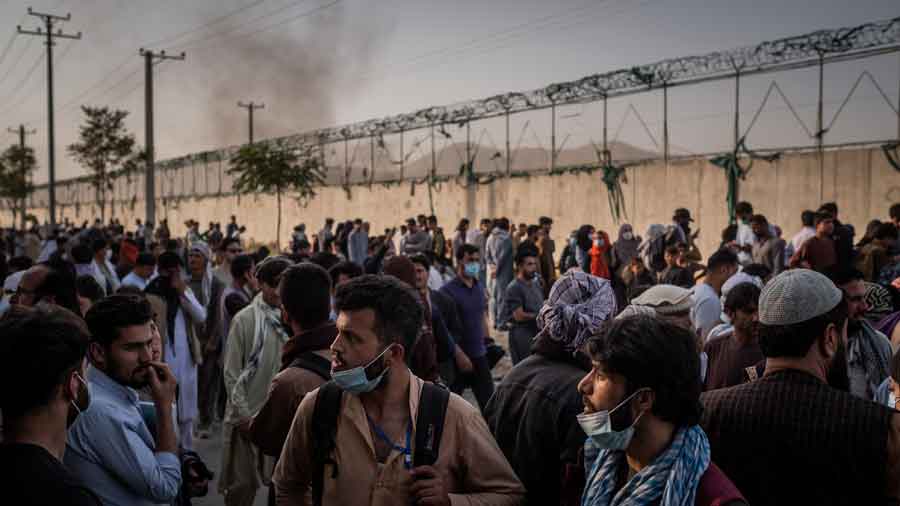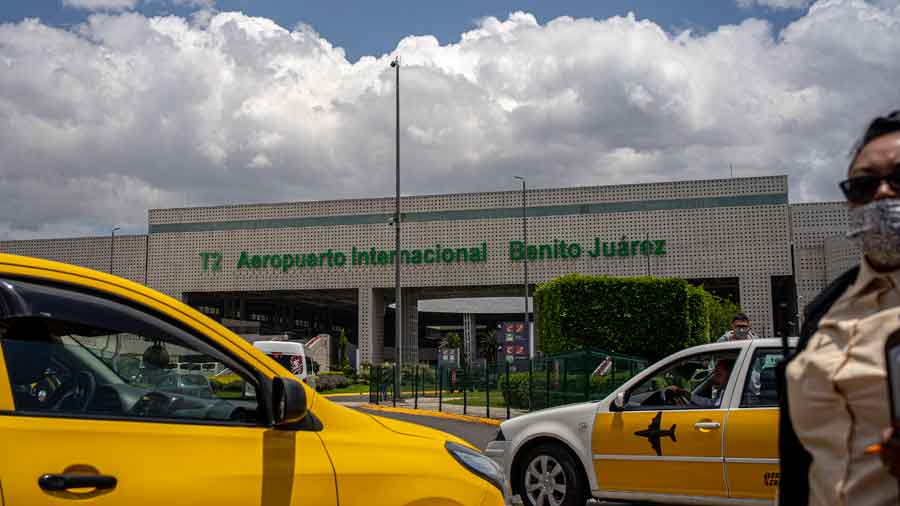The Americans are all but gone, the Afghan government has collapsed, and the Taliban rule the streets of Kabul now. Overnight, millions of Kabul residents have been left to navigate an uncertain transition after 20 years of US-backed rule.
On Tuesday, nine days after the Taliban walked back into power, government services were still largely unavailable. Residents are struggling to lead their daily lives in an economy that, propped up for the past generation by American aid, is now suddenly in free fall.
Banks are closed, and cash is growing scarce even as food prices rise. Petrol is becoming harder to find.
With American forces clinging to the international airport to conduct a rushed evacuation, the Taliban continued to tighten their grip in the capital’s neighbourhoods and streets. While relative calm reigned over the capital, in sharp contrast to the free-for-all at the airport, many residents hid in their homes or ventured out only cautiously to see what life might be like under their new rulers.
Reports varied according to neighbourhoods and people, providing an evolving and sometimes contradictory snapshot of life in a city governed, once again, by the Taliban — a movement now promising moderation and inclusiveness but with a history of adherence to a harsh and uncompromising Islamist order of society.
Even residents who said they feared the Taliban were struck by the relative order and quiet on the streets — a sharp contrast with years of rising crime and violence that had become a daily facet of life in the capital.
But for some, the quiet has been ominous.
A resident named Mohib said that, in his section of the city, streets were deserted, with people hunkering down in their homes “scared and terrorised”.
“People feel the Taliban may come any moment to take away everything from them,” said Mohib, who, like the dozen residents interviewed for this article, is being identified only by his first name for safety concerns.
In central areas with many Taliban, women were few and those venturing out wore burqas, the full-body garment that covers the face, said Sayed, a civil servant.
But elsewhere in the city, with a light Taliban presence, women were going out “with normal clothes as it was before the Taliban”, said Shabaka, adding that she herself had walked outside and met Taliban without incident despite wearing her “usual clothes”.
While she said there was an underlying fear in her neighbourhood, she said the situation was also calm.
Others had positive things to say about the arrival of the Taliban, in contrast to their US-backed Afghan predecessors, widely despised for their corruption.
In the Company neighbourhood on the western edge of Kabul, even though petrol has been getting harder to find, road traffic and business was nearly back to normal.
Truck and bus drivers said that Afghanistan’s highways had become more secure now that the Taliban had consolidated control over the country.
Drivers praised the removal of dozens of checkpoints where security forces and militias had previously extorted bribes — replaced with a single toll payment to the Taliban.
“We’re happy with the Islamic Emirate,” said Ruhullah, 34, a resident of Wardak Province who drives a passenger bus along the main highway from Herat to Kabul. “With the Taliban’s arrival, our problems have been solved. There’s no more police harassment and bribery.”
In the vacuum created by the Afghan government’s fall, Taliban leaders have reached out to Russia and to the former Afghan President, Hamid Karzai, as they deliberate on the shape of a new government.
But in Kabul, there was little evidence so far of a new authority in government offices.
At a government electronic ID office, Khalid said, there was not a single civil servant, not even “a Talib to answer”.
Civil servants were not reporting to work, fearing retribution by the Taliban, Khalid said.
Personnel changes were taking place in other government offices, other residents said.
“Those who had jobs in the government have lost them, and the Taliban are appointing new employees,” said Raziq, a travel agent.
The swift takeover by the Taliban has undermined a fragile economy that was largely dependent on foreign aid. As the US and the IMF have shut the flow of money to Afghanistan, the Taliban have been left isolated and are facing a financial crisis.
In addition to banks being closed, so were hawalas, informal money-transfer businesses, residents said.
New York Times News Service











